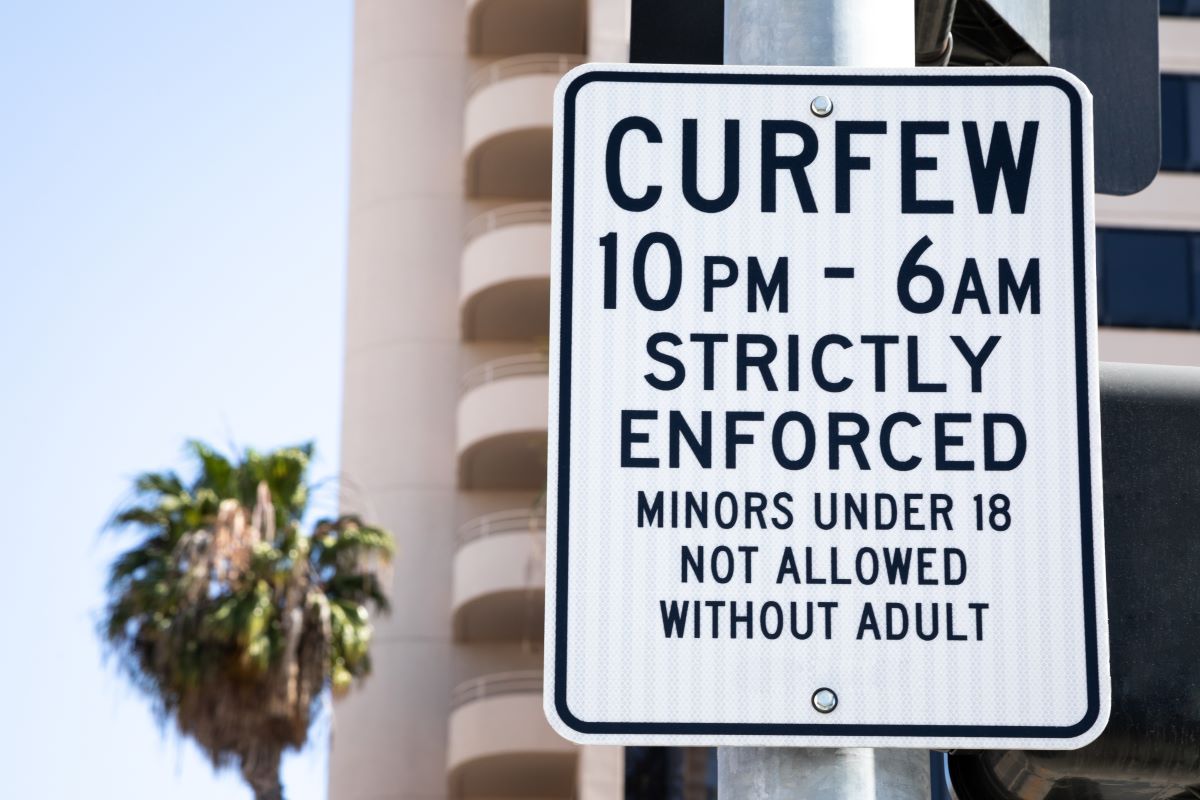Too Much Control? The Rise of Nanny States in America
America prides itself on freedom, but are states becoming overbearing nannies? From sugary drink bans to plastic straw restrictions, it seems no aspect of life is off-limits. Are these measures truly protecting us, or are they just excessive control?
Sugar Police

New York’s infamous attempt to ban large sugary drinks had everyone talking. Was it about health, or just another way for the government to intrude into our lives? Critics argue that adults should make their own dietary choices without a nanny state intervention. The ban was struck down, but the debate over government interference in personal choices continues to rage.
Plastic Straw Crackdown

California’s crackdown on plastic straws turned a simple sip into a political statement. Environmental concerns aside, many felt this was another example of government overreach. Shouldn’t people have the freedom to choose their own utensils? The Golden State has crowned itself the Queen of Nannies with its relentless pursuit of regulating everyday life, often leading the charge in nanny state initiatives.
No Smoking, Even Outside

Several states, including Hawaii and New York, have extended smoking bans to include outdoor areas. While public health is important, this move has left smokers feeling cornered. Is it fair to restrict outdoor spaces in the name of health? These policies reflect a growing trend where states prioritize public health over individual freedoms.
Helmet Laws: Safety or Nannying?

Motorcycle helmet laws are touted as lifesavers, but some see them as another infringement on personal freedom. California and New York, in particular, have stringent helmet laws. Shouldn’t riders decide their own safety measures? The debate rages on, with freedom and safety at odds, and some states like Texas opting for less restrictive measures.
Bans on Flavored Vapes

Vaping bans, especially on flavored products, have sparked intense debates. States like Michigan and Massachusetts have implemented strict bans. Proponents claim it’s to protect youth, but adult vapers feel punished. Is the state genuinely concerned, or just enjoying its control? These bans highlight the ongoing tension between public health initiatives and personal liberties.
COVID-19 Restrictions: Necessary or Overkill?

COVID-19 brought unprecedented government mandates. From lockdowns to mask requirements, states like California and New York took drastic steps. Were these measures essential for public health, or did they cross the line into authoritarianism? The responses varied widely across the country, with some states like Florida taking a much less restrictive approach.
Mandatory Vaccinations: Public Health vs. Personal Choice

Mandatory vaccination policies have ignited fierce debates. Protecting public health is crucial, but should it come at the cost of individual autonomy? States like California have implemented some of the strictest vaccination laws, eliminating personal belief exemptions for school children. The balance between collective safety and personal rights is delicate and contentious.
Curfews and Public Gatherings

State-imposed curfews and restrictions on public gatherings have been met with mixed reactions. California again leads with stringent curfews, particularly during the pandemic. Are these measures about safety, or just another way for the government to control our lives? The question remains: where do we draw the line?
Banning Single-Use Plastics

States banning single-use plastics aim to combat environmental issues. California and Hawaii are at the forefront of this movement. However, this move has sparked debates about personal freedom versus environmental responsibility. Are these bans necessary, or just more nanny state interference?
Soda Taxes: Health Initiative or Government Overreach?

Soda taxes in various states aim to curb sugary drink consumption. Philadelphia and Berkeley, California, have implemented such taxes. Critics argue that such taxes unfairly target lower-income populations and infringe on personal choice. Is it the government’s role to influence our drink choices?
Limiting Gun Ownership

Gun control laws are among the most polarizing issues. States like California and New York have some of the strictest laws. Advocates say they save lives, while opponents see them as a direct attack on constitutional rights. Is this another case of the nanny state going too far?
The War on Plastic Bags

Many states have banned or taxed plastic bags, prompting consumers to rethink their shopping habits. California led the charge, with New York following suit. While the environmental intent is clear, some see it as an inconvenience imposed by an overreaching government. Is it progress, or just more regulation?
Regulation of School Lunches

State regulations on school lunches aim to promote healthier eating among children. However, many parents feel these rules are too strict and limit their choices. California has set high standards for school nutrition, often leading the nation in such policies. Are these regulations beneficial, or just another example of the nanny state at work?
Restrictions on Alcohol Sales

States with stringent alcohol sales laws argue they’re protecting public health. Pennsylvania and Utah have some of the strictest regulations. Yet, these restrictions often feel like an unnecessary intrusion into personal freedom. Should adults have more autonomy over their alcohol consumption?
Nutritional Labeling Requirements

Mandatory nutritional labeling is intended to help consumers make informed choices. However, critics claim it’s just another way for the government to meddle in our lives. California was one of the first states to require such labeling, setting a trend that many others have followed. Do we really need the state to tell us what we’re eating?
The Nanny State Conundrum

As states continue to implement regulations in the name of public welfare, the line between protection and overreach blurs. Will we ever find a balance that respects both public health and personal freedom? The debate is far from over, especially in states like California that seem intent on leading the nanny charge.
Overregulated and Underwhelmed

California’s aggressive stance on nanny state policies makes it a prime example. But will these measures lead to a healthier, happier populace, or just more frustrated citizens? Can we strike a balance between safety and freedom, or will the nanny state continue to tighten its grip?
Toxic Talk: 21 Phrases to Never Say to Your Kids

Are you worried about the impact of your words on your child’s well-being? Let’s tackle 21 phrases that might be causing more harm than you realize. Toxic Talk: 21 Phrases to Never Say to Your Kids
Breaking Ties: Recognizing When It’s Time to Go No-Contact with Parents

Deciding to go no-contact with a parent is a profound, often painful choice, but sometimes it’s necessary for personal well-being. Are you grappling with the decision to distance yourself from a toxic parental relationship? Breaking Ties: Recognizing When It’s Time to Go No-Contact with Parents
Stop the Stereotypes: 20 Gender-Based Comments Kids Don’t Need

It’s time to challenge traditional narratives that limit kids’ potential. Here are gender-specific phrases and ideas to avoid, fostering a supportive and open-minded environment for the next generation. Stop the Stereotypes: 20 Gender-Based Comments Kids Don’t Need
Featured Image Credit: Shutterstock / VDB Photos.
For transparency, this content was partly developed with AI assistance and carefully curated by an experienced editor to be informative and ensure accuracy.







